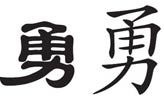Chinese and US regulators meet to discuss accounting scandals
2011-07-12 09:45:04
Strengthened regulation by Chinese and US policymakers may reduce the number of Chinese companies listed in the United States, but it will boost investor confidence, said experts.
Equities rise as inflation concerns decrease
2011-07-12 09:43:49
Stocks on the Chinese mainland rose, spurring the biggest gain for the benchmark index in a week, on speculation inflation will decelerate the rest of the year and the nation's economic growth may sustain earnings.
ChiNext Index closes down -- July 8
2011-07-08 16:46:19
The ChiNext Index, launched by the Shenzhen Stock Exchange (SZSE) on June 1, 2010, fell 4.89 points, or 0.54 percent, to 894.91 on Friday.
China stock index futures close up -- July 8
2011-07-08 16:42:49
China's stock index futures closed up on Friday with the contract for July, the most actively traded, up 13.6 points, or 0.44 percent, from the previous day to 3,120.6 points.
Stocks slip after interest rate hike
2011-07-08 13:41:42
Stocks on the Chinese mainland fell for a second day after the central bank raised interest rates for a third time this year to slow growth in the world's second-largest economy.
Zhu may be in line for high post at IMF
2011-07-08 11:08:53
As a scholar and an internationally recognized financial official, Zhu Min, special advisor to the managing director of the International Monetary Fund (IMF), brought the view of emerging markets to this important institution.
Asset managers seeking extra funds
2011-07-08 09:43:12
China's asset managers, who have been approved to raise $70 billion for allocation overseas, are seeking additional funds to invest in gold and precious metals as soaring inflation spurs interest in alternative assets as a way of protecting wealth.
$8b enter China's VC market in H1
2011-07-08 09:34:50
China's Zero2IPO Group, a leading research institution for the country's venture capital and private equity industry, said on Thursday that a record 8.1 billion U.S. dollars entered China's venture capital market during the first half of this year.
China launched first "virtual property" insurance
2011-07-07 17:09:48
A Chinese insurance company has unveiled a new type of "virtual property" insurance that might be the first of its kind in the world.
China foreign debt at $586b at end-March
2011-07-07 16:29:32
China's outstanding foreign debt stood at $586 billion at the end of the first quarter, the country's foreign exchange regulator said in a statement on Thursday.
China stocks close down -- July 7
2011-07-07 16:31:00
Chinese shares closed down on Thursday after the central bank hiked one-year interest rates by 25 basis points.
Share sales would unshackle ChinaAMC
2011-07-07 14:35:50
Any success Citic Securities Co has in disposing of its 51 percent stake in fund management company China Asset Management Co (ChinaAMC) will clear the way for the latter to make a strong comeback from its nearly two-year ban from offering new products, analysts say.











